Avoid or increase prices to 'cope'
From June 1, according to Decree 70, business households paying lump-sum tax with revenue in 2025 of 1 billion VND or more are required to use electronic invoices with tax authority codes generated from cash registers.
Accordingly, businesses must equip themselves with equipment, software and issue invoices for each sales transaction. On that basis, tax authorities will know the actual revenue.
It is expected that 37,000 households and business individuals currently paying taxes in the form of lump sums will have to change their form.
Before this change, it was noted that some businesses had announced that they would stop accepting payments via bank transfer and only accept cash; others still accepted bank transfers but increased their prices, citing the reason of “implementing the new tax law”.
Notices of cash-only purchases from businesses appear. Screenshot
However, on the other hand, there are also cases of trying to avoid regulations. Ms. Thu Hang (Hoang Mai district, Hanoi ) said that a business specializing in selling rice online texted her, asking her to leave the transfer content blank, or just write "transfer" because each bag of rice "doesn't bring much profit and is still subject to tax".
There is also information circulating on social networks that personal accounts with a total transaction amount (incoming and outgoing) of over 1 billion VND/year will be charged 1.5% of the total transaction. Therefore, some sellers ask for permission to collect all in cash, or if customers transfer money, they will issue an electronic invoice and deduct a 1.5% fee.
Signs of law violation
Sharing with VietNamNet reporter, Mr. Nguyen Ngoc Tinh, Vice President of Ho Chi Minh City Tax Consultants and Agents Association, said that some business households do not fully understand legal regulations.
Because, depending on the industry, the personal income tax and value added tax rates will be different, but the method of determining tax will not change before and after June 1.
The only thing is, previously revenue was not determined through the cash register, but now revenue is clearly declared through the electronic system so it is public and transparent.
"If you do business or sell goods, you must declare and pay taxes and issue invoices. If you collect payments in cash, by bank transfer or by any other payment method through a financial intermediary, you still have the responsibility to declare and pay taxes," Mr. Tinh affirmed.
Regarding the "trick" of transferring money without stating the content or only stating "transfer", Mr. Tinh commented that this is an act that violates the spirit of Decree 123/2020/ND-CP and violates the provisions of Circular 32/2025/TT-BTC on invoices and documents.
Accordingly, online sellers and those posting on social networks such as Facebook or Zalo must issue invoices and the content on the invoices and documents must be specific and clear.
Experts say that if you do business or sell goods, you must declare and pay taxes and issue invoices. Photo: Nguyen Le
“If a business household issues an invoice that does not fully comply with the form and content as prescribed, the tax authority can impose a fine. Regardless of the form of sale, it is still responsible for declaring revenue to determine the basis for tax calculation,” said Mr. Tinh.
He also suggested that, in addition to using cash registers, tax authorities need to control fairness, not allowing the situation where sellers pay full tax via transfer, while those who collect cash pay less. Reconciling the amount of money collected, goods sold, and revenue during the period will help detect tax evasion.
Mr. Nguyen Van Duoc, General Director of Trong Tin Tax Consulting Services Co., Ltd., said that refusing to receive transfer payments is an act that shows signs of violating the law. Tax authorities can completely target these sellers for tax inspection and handling to deter violations.
Regarding the phenomenon of collecting an additional 1.5% on the total amount of money transferred from June 1, Mr. Duoc affirmed that this is a misconception.
“VAT is an indirect tax, which consumers have to pay; while personal income tax is the responsibility of business households. VAT can be considered to be added to the selling price. It is the right of business households to raise the selling price to cover tax costs, but it must be publicly listed and applied equally to all customers, regardless of whether they receive an invoice or not,” he said.
According to Mr. Duoc, the new regulations on invoices and cash registers are not intended to increase taxes, but to make revenue transparent and prevent tax losses.
“A number of business households and individuals do not understand the law or are afraid of complicated tax procedures, so they find ways to deal with and avoid them. We need to enlighten their thinking so that they understand that fulfilling tax obligations is mandatory, but not too complicated,” Mr. Duoc emphasized.
The Tax Department of Region I (managed by Hanoi and Hoa Binh) emphasized that the act of hanging a sign "cash only" or writing ambiguous transfer content - for example "repaying loan", "coffee fee", "shipping fee"... making it difficult for authorities to determine revenue does not reduce tax obligations but on the contrary can become a sign of suspicion for the act of concealing revenue. At the same time, this also goes against the trend of "Digital Society - Digital Economy - Digital Citizen" and the policy of developing cashless payments of the Party and State. "In some cases, sellers request to collect additional money from buyers if payment is made by bank transfer, which not only affects the buyer's rights but also shows signs of violating the law," said the Tax Department of Region I. |
Stores avoid taxes by refusing to transfer money: Doing so will definitely lose customers. Not accepting money transfers or charging extra money if customers intentionally transfer money, etc. are tricks of stores and online shop owners to avoid taxes.
Source: https://vietnamnet.vn/ho-kinh-doanh-ne-quy-dinh-thue-moi-co-the-tra-gia-dat-2408165.html












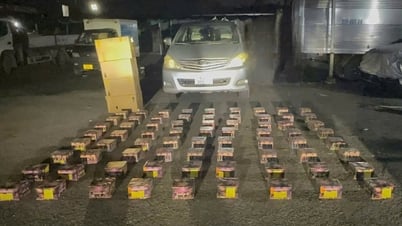



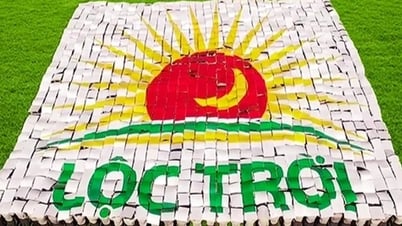























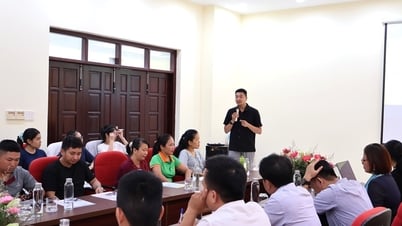


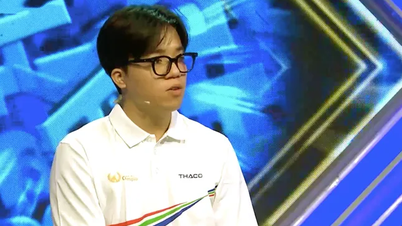















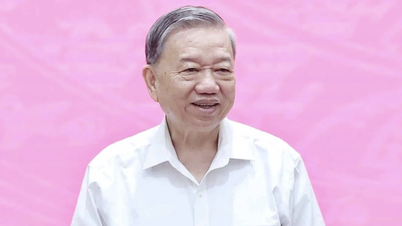



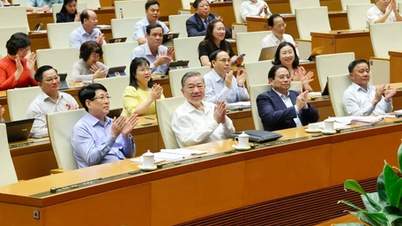


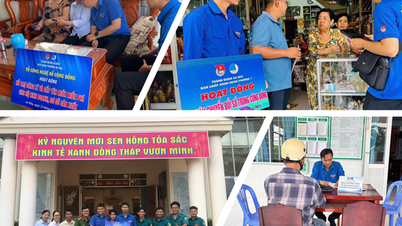











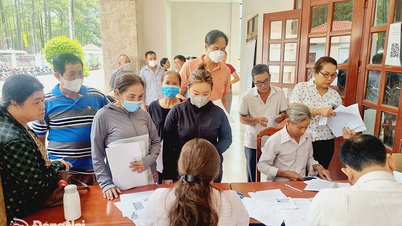


















Comment (0)